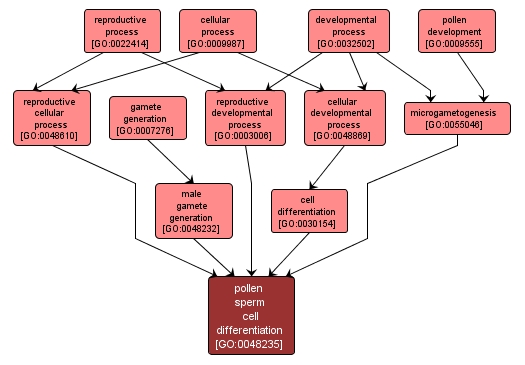GO TERM SUMMARY
|
| Name: |
pollen sperm cell differentiation |
| Acc: |
GO:0048235 |
| Aspect: |
Biological Process |
| Desc: |
The process whereby a relatively unspecialized cell acquires specialized features of a haploid sperm cell within the plant gametophyte. |
Synonyms:
- GO:0048234
- male gametophyte sperm cell differentiation
- male gamete generation
- sperm cell differentiation
|
|

|
INTERACTIVE GO GRAPH
|














